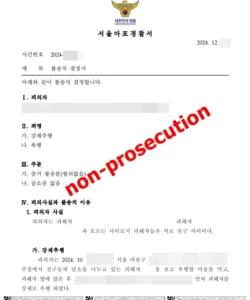Petition for Return of the Child (Hague Convention)
[Decision of the Supreme Court, Apr 17, 2018, case #2017seu630]
[Details of the ruling]
The case was about a petition with the court seeking child return based on the infringement of the rights of custody due to a wrongful translocation or retention of the child to/in Korea. The judgment was about whether the case where the child was mentally injured due to one of the parent’s actions against the other parent, such as frequent violence, and where the child, if returned to the place of habitual residence, would be in extreme pain because of not being able to receive adequate protection or be raised properly, is considered an exception of “grave risk” as defined by Article 12, Paragraph 4, Subparagraph 3 of the Act on the Implementation of the Hague Convention on the Civil Aspects of International Child Abduction (positive in this regard) and what matters the court that received the petition seeking child return should consider.
[Judgment’s summary]
Based on the “Hague Convention on the Civil Aspects of International Child Abduction” (hereinafter the “Convention”) and the Act on the Implementation of the Hague Convention on the Civil Aspects of International Child Abduction (hereinafter the “Act”), a person whose right of custody under the Convention has been breached as a result of a wrongful removal or retention of a child to or in the Republic of Korea may file with the competent court a petition seeking return of the child (Article 12, Paragraph 1 of the Act), and the court shall act expeditiously, with top priority on the welfare of the child (Article 3 of the Act).
On the other hand, even when a person’s right of custody was breached as a result of a wrongful removal, etc., the court may dismiss such a petition if “there is a grave risk that the return of the child would expose the child to physical or psychological harm or otherwise place the child in an intolerable situation” (Article 12, Paragraph 4 of the Act).
The exception provided by Article 12, Paragraph 4 of the Act is meant to prevent the danger the child’s specific and individual welfare being violated as a result of a prompt return of the child. Its analysis suggests that the child’s rights and interests shall prevail over the parental right of custody or expeditious judicial proceedings, etc. Therefore, the definition of grave risk should include not only cases when there is a risk of harmful effect on the child’s mind and body due to the petitioner’s direct violence or abuse toward the child, but it should also include cases when frequent violence, etc. toward the other parent can place the child in the state of extreme pain because of not being able to receive adequate protection or be raised properly, if the child is returned to the place of habitual residence.
Apart from the circumstances mentioned above, the court that received the petition for return of the child shall examine all other circumstances combined, such as the extent of such danger and whether there is a risk of it being repeated, the specific environment for child rearing before and after the return of the child, the mental and physical effect the return will have on the child, etc., as well as consider the rights of custody, etc. of the petitioner and respondent and determine what the best interest of the child would be and whether the child’s welfare can be severely violated instead.



